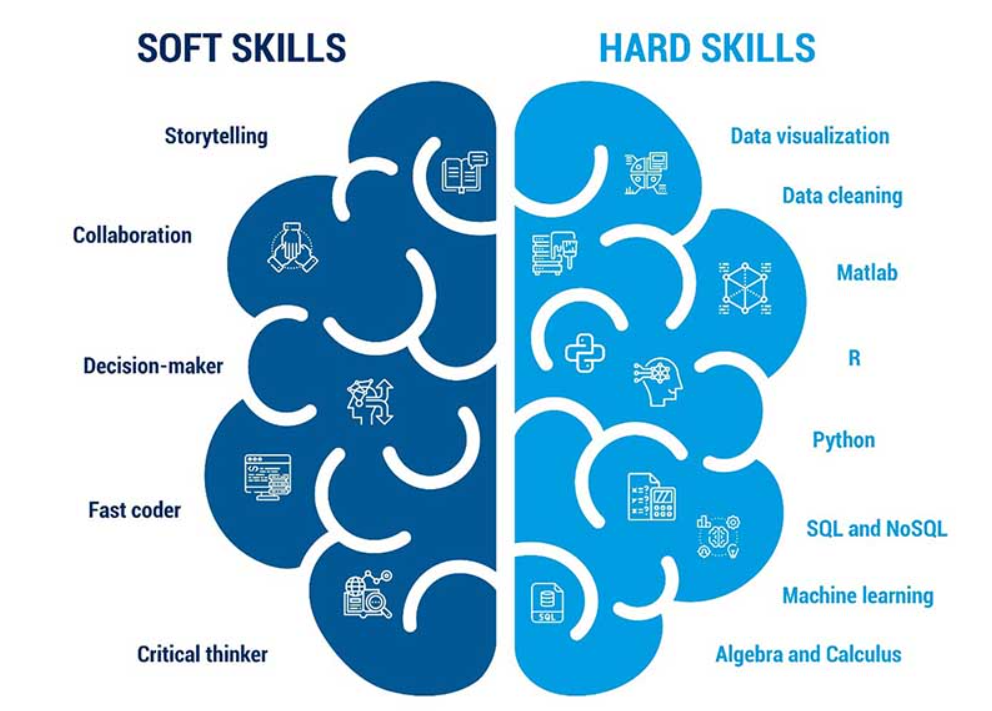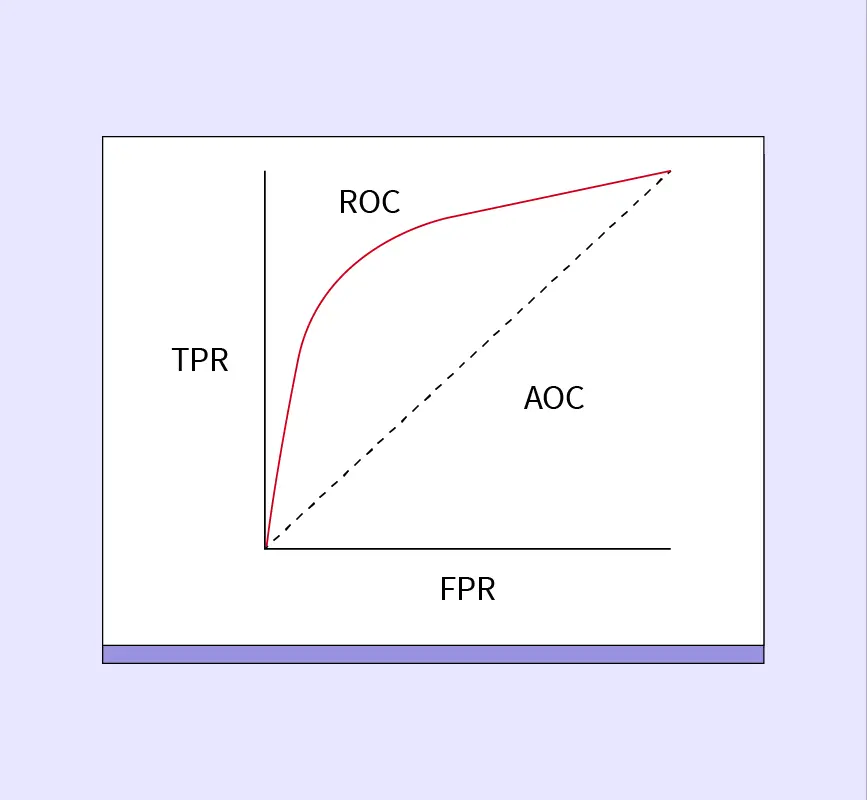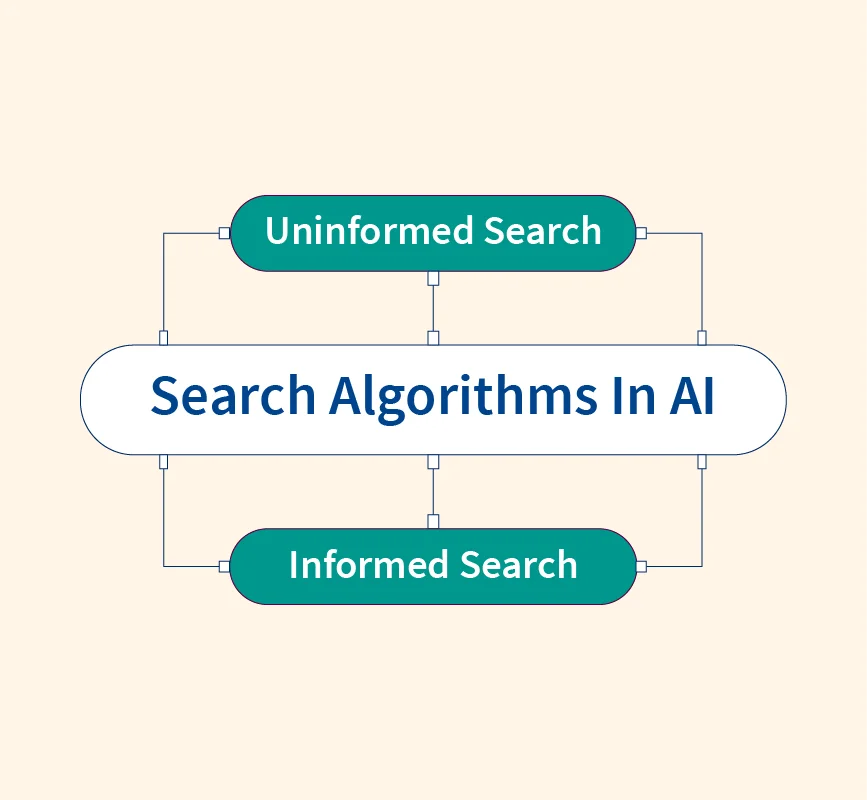In today’s digital age, where businesses generate massive amounts of data every second, the role of a data scientist has become indispensable. These professionals possess the unique ability to transform raw data into actionable insights, driving informed decision-making and innovation across industries.
The demand for skilled data scientists is skyrocketing. According to the U.S. Bureau of Labor Statistics, the employment of data scientists is projected to grow a staggering 36% from 2021 to 2031, much faster than the average for all occupations. This surge underscores the critical need for individuals equipped with the right blend of technical prowess and soft skills to navigate the complex world of data.
From mastering programming languages like Python and R to honing communication and problem-solving abilities, the path to becoming a successful data scientist demands a diverse skill set. But the rewards are substantial. Acquiring these skills not only opens doors to lucrative career opportunities but also empowers individuals to extract meaningful insights from data, making a tangible impact on businesses and society as a whole.

Essential Technical Skills Required for Data Science
1. Programming Languages: Python, R, SQL, and NoSQL
- Python: Renowned for its simplicity and versatility, Python has become the go-to language for data science. Its extensive libraries, such as NumPy, Pandas, and Scikit-learn, streamline data manipulation, analysis, and machine learning tasks.
- R: A statistical programming language, R is favored by those working extensively with statistical analysis and data visualization. Its rich ecosystem of packages caters to various data science needs.
- SQL: Structured Query Language (SQL) is indispensable for interacting with relational databases. Data scientists use SQL to extract, filter, and aggregate data for analysis.
- NoSQL: As unstructured data proliferates, NoSQL databases like MongoDB and Cassandra have gained prominence. Familiarity with NoSQL enables data scientists to handle diverse data formats effectively.
2. Data Manipulation and Analysis: Data Wrangling, Cleaning, and EDA
- Data Wrangling: Transforming raw data into a suitable format for analysis often involves restructuring, merging, and aggregating datasets. Data wrangling skills are crucial for preparing data for subsequent steps.
- Data Cleaning: Real-world data is often messy, containing errors, inconsistencies, and missing values. Data cleaning involves identifying and rectifying these issues to ensure data quality and reliability.
- Exploratory Data Analysis (EDA): EDA is the process of summarizing and visualizing data to uncover patterns, trends, and anomalies. It helps data scientists gain a deeper understanding of the data before applying more complex techniques.
3. Statistics and Mathematics: Probability, Linear Algebra, and Calculus
- Probability: Understanding probability distributions and statistical inference is essential for hypothesis testing, modeling, and making predictions based on data.
- Linear Algebra: Concepts like matrices, vectors, and linear transformations underpin many machine learning algorithms. A solid grasp of linear algebra enables data scientists to comprehend and implement these algorithms effectively.
- Calculus: Calculus provides the mathematical foundation for optimization, gradient descent, and understanding the behavior of functions, which are crucial in machine learning and deep learning.
4. Machine Learning and AI: Algorithms, Frameworks, and Model Evaluation
- Algorithms: Data scientists should be familiar with various machine learning algorithms, including regression, classification, clustering, and decision trees. Understanding how these algorithms work allows for appropriate selection and application.
- Frameworks: Libraries like Scikit-learn and TensorFlow provide powerful tools for implementing machine learning models. Proficiency in these frameworks accelerates development and experimentation.
- Model Evaluation: Evaluating the performance of machine learning models is crucial to ensure their accuracy and generalization. Data scientists use metrics like precision, recall, and F1-score to assess model effectiveness.
5. Deep Learning: Neural Networks, TensorFlow, and PyTorch
- Neural Networks: Deep learning leverages neural networks with multiple layers to model complex patterns in data. Understanding neural network architectures and training processes is key for building deep learning models.
- TensorFlow: A popular open-source framework for deep learning, TensorFlow provides a flexible platform for creating and deploying neural networks.
- PyTorch: Another leading deep learning framework, PyTorch offers a dynamic computational graph and intuitive interface, making it a preferred choice for research and experimentation.
6. Big Data: Hadoop, Spark, and Cloud Computing
- Hadoop: A distributed computing framework, Hadoop enables the processing and storage of massive datasets across clusters of computers.
- Spark: Built on top of Hadoop, Spark provides a faster and more efficient platform for big data processing, particularly for iterative and in-memory computations.
- Cloud Computing: Cloud platforms like AWS, Azure, and Google Cloud offer scalable and cost-effective solutions for storing and processing big data, eliminating the need for on-premise infrastructure.
7. Data Visualization: Tableau, Power BI, and Matplotlib
- Tableau: A powerful data visualization tool, Tableau allows for the creation of interactive and insightful dashboards, enabling data scientists to communicate findings effectively.
- Power BI: Microsoft’s business intelligence platform, Power BI, offers similar capabilities to Tableau, with seamless integration with other Microsoft products.
- Matplotlib: A Python library, Matplotlib provides extensive control over the creation of static, animated, and interactive visualizations, offering flexibility for data scientists.
8. Natural Language Processing (NLP): Text Mining and Sentiment Analysis
- Text Mining: Extracting meaningful information from unstructured text data involves techniques like tokenization, stemming, and part-of-speech tagging.
- Sentiment Analysis: Understanding the emotional tone of text, such as positive, negative, or neutral, is valuable for gauging customer opinions, social media sentiment, and brand perception.
9. Database Management: SQL, NoSQL, and Cloud Databases
- SQL and NoSQL: As mentioned earlier, proficiency in both SQL and NoSQL databases is essential for interacting with and managing structured and unstructured data, respectively.
- Cloud Databases: Cloud-based database solutions like Amazon RDS and Google Cloud SQL offer managed services, simplifying database administration and scaling.
Soft Skills Required For Data Scientists
While technical skills are essential, soft skills complement them by enabling data scientists to collaborate effectively, communicate their findings clearly, and navigate the complexities of the real world. Let’s explore the key soft skills that are indispensable for success in this field.
1. Communication: Translating Insights into Action
Data scientists often need to present complex findings to non-technical stakeholders. The ability to articulate these insights in a clear, concise, and engaging manner is vital. Effective communication bridges the gap between data and decision-making, ensuring that valuable information is understood and utilized.
2. Problem-Solving: Navigating Challenges with Clarity
Data science projects frequently encounter unexpected obstacles and challenges. A structured and analytical approach to problem-solving is crucial. This involves breaking down complex problems into manageable components, identifying root causes, and developing effective solutions.
3. Collaboration: Teamwork Makes the Dream Work
Data scientists rarely work in isolation. Collaboration with colleagues, domain experts, and stakeholders is a common occurrence. The ability to work effectively in teams, share ideas, and integrate diverse perspectives is essential for driving successful projects.
4. Business Acumen: Understanding the Bigger Picture
Data scientists need to grasp the business implications of their work. This involves understanding the organization’s goals, challenges, and key performance indicators. By aligning their analyses with business objectives, data scientists can generate actionable insights that drive tangible results.
5. Critical Thinking: Separating Signal from Noise
Data scientists encounter vast amounts of information. Critical thinking skills enable them to evaluate information objectively, identify biases, and make informed decisions based on evidence. This helps to avoid jumping to conclusions and ensures the accuracy and reliability of their findings.
6. Curiosity and Lifelong Learning: Staying Ahead of the Curve
The field of data science is constantly evolving. Data scientists need to be curious, inquisitive, and eager to learn. By staying abreast of the latest trends, technologies, and research, they can remain at the forefront of innovation and contribute to the field’s advancement.
7. Adaptability: Embracing Change
New tools, techniques, and algorithms emerge regularly in data science. Data scientists need to be adaptable and open to change. Embracing new technologies and incorporating them into their workflow allows them to stay ahead of the curve and remain competitive.
8. Time Management: Juggling Multiple Priorities
Data science projects often involve multiple tasks and deadlines. Effective time management skills help data scientists prioritize their work, allocate resources efficiently, and meet project milestones. This ensures that projects stay on track and deliver results on time.
9. Attention to Detail: Precision Matters
Data analysis requires meticulous attention to detail. Even minor errors in data cleaning or model development can have significant consequences. Data scientists need to be thorough, accurate, and precise in their work to ensure the integrity and reliability of their findings.
10. Ethical Awareness: Doing the Right Thing
Data scientists handle sensitive information. They need to adhere to ethical guidelines and data privacy regulations. This involves being transparent about their methods, protecting confidential data, and avoiding any actions that could harm individuals or organizations.
How to Develop Your Data Scientist Skills
Becoming a proficient data scientist requires ongoing commitment and dedication. While formal education lays the groundwork, it’s essential to continuously expand your knowledge and refine your skills through various avenues. Here are some effective ways to enhance your data science prowess:
1. Formal Education: Degrees and Bootcamps
A formal degree in data science, computer science, statistics, or a related field offers a structured learning environment. You’ll gain a deep understanding of fundamental concepts, algorithms, and techniques, paving the way for advanced applications. If you prefer a more intensive and accelerated approach, consider enrolling in a data science bootcamp. Bootcamps provide focused, hands-on training that quickly equips you with practical skills and industry-relevant knowledge.
2. Online Courses and Certifications
The internet offers a plethora of online courses and certifications tailored for data science. Platforms like Coursera, Udacity, and edX provide access to expert-led courses covering various aspects of data science, from programming to machine learning. These courses offer flexibility and enable you to learn at your own pace, making them ideal for professionals with busy schedules.
3. Hands-on Projects and Practice
Theory is best complemented by practice. Engage in real-world projects to apply your skills and gain invaluable experience. Start with smaller projects and gradually progress to more complex ones. Explore datasets, build predictive models, and create data visualizations to showcase your capabilities and deepen your understanding.
4. Building a Portfolio
A strong portfolio demonstrates your abilities and serves as evidence of your practical experience. Compile your projects, data visualizations, and any relevant contributions to open-source projects. Highlight the challenges you faced, the solutions you implemented, and the insights you generated. A compelling portfolio can significantly boost your job prospects and set you apart from other candidates.
5. Contributing to Open Source
Participating in open-source projects offers a unique opportunity to collaborate with experienced data scientists and contribute to the community. Contribute code, documentation, or tutorials to showcase your skills and commitment to the field. This also provides exposure to real-world codebases and best practices.
6. Networking and Community Engagement
Connect with other data scientists through online forums, meetups, and conferences. Engage in discussions, share your knowledge, and learn from others. Networking helps you stay updated on industry trends, discover new opportunities, and build valuable relationships with professionals in the field.
7. Mentorship and Guidance
Seek out mentors or experienced data scientists who can provide guidance and support throughout your journey. A mentor can offer valuable insights, share their experiences, and help you navigate challenges. Their advice can accelerate your learning and career progression.
Remember, becoming a proficient data scientist is an ongoing process. Embrace lifelong learning, stay curious, and actively seek out opportunities to expand your knowledge and skills. The field is constantly evolving, and your willingness to adapt and grow will set you up for success in this dynamic and rewarding career path.
The Future of Data Science Skills
As technology continues its relentless march forward, data science is poised for significant transformations. Staying ahead of the curve necessitates adapting and upskilling to embrace emerging trends and technologies.
Emerging Trends & Technologies
The rise of AutoML (Automated Machine Learning) is streamlining the model development process, empowering data scientists to focus on higher-level tasks like problem definition and interpretation. Explainable AI is gaining prominence, enabling data scientists to understand and communicate the reasoning behind their models’ predictions, fostering trust and transparency. Additionally, ethical considerations surrounding data privacy, bias mitigation, and responsible AI are becoming increasingly critical, requiring data scientists to navigate these complexities with integrity.
Adapting & Staying Ahead
The key to thriving in the ever-evolving world of data science lies in continuous learning. Embrace new tools, techniques, and frameworks as they emerge. Stay informed about the latest research breakthroughs and actively participate in online communities and conferences to exchange ideas and learn from your peers. By committing to lifelong learning and upskilling, you’ll ensure that your skills remain relevant and sought after in the years to come.
Conclusion
In the dynamic landscape of data science, a multi-faceted skill set is your key to success. The combination of technical expertise and well-honed soft skills empowers you to unlock valuable insights from data, driving innovation and informed decision-making.
Embrace the journey of continuous learning, leverage the plethora of available resources, and actively cultivate your skills to stay ahead in this exciting field. Remember, the rewards of mastering data science extend far beyond career advancement; they include the ability to shape the future and make a meaningful impact on the world.


